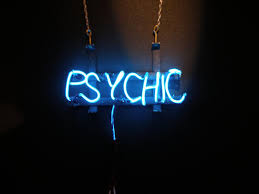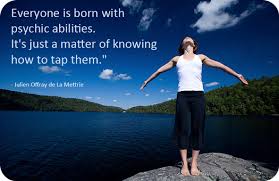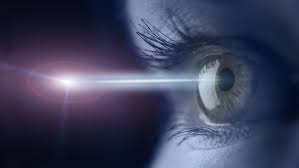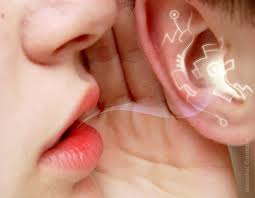
 Most of us who are waking will begin to notice what used to be called psychic 'gifts' becoming a normal part of your everyday life. This can be disconcerting, and you may even try to ignore it or write it off as just an odd anomaly. This article is to help you sort it out, catch it early as it's just beginning and make some sense of it in your interior structure to help build a skill set.
Most of us who are waking will begin to notice what used to be called psychic 'gifts' becoming a normal part of your everyday life. This can be disconcerting, and you may even try to ignore it or write it off as just an odd anomaly. This article is to help you sort it out, catch it early as it's just beginning and make some sense of it in your interior structure to help build a skill set.
Through the years I have noticed that learning style - the way you put information into your being to grow and use it, is very closely linked with how your 'extra' (extra - really??? It's been there all along…) sensory perceptions will come out. Because really, it's simply a continua of the same thing, perceptions.
Learning styles are described for you from this site. I found it clear and easy to understand.
The VAK learning style uses the three main sensory receivers:
Visual - seeing
Auditory - hearing
Kinesthetic - body or movement
It is sometimes known as VAKT (Visual, Auditory, Kinesthetic, & Tactile). It is based on modalities—channels by which human expression can take place and is composed of a combination of perception and memory.
VAK is derived from the accelerated learning world and seems to be about the most popular model nowadays due to its simplicity. While the research has shown a connection with modalities and learning styles (University of Pennsylvania, 2009), the research has so far been unable to prove the using one's learning style provides the best means for learning a task or subject. This is probably because it is more of a preference, rather than a style.
Learners use all three modalities to receive and learn new information and experiences. However, according to the VAK or modality theory, one or two of these receiving styles is normally dominant. This dominant style defines the best way for a person to learn new information by filtering what is to be learned. This style may not always to be the same for some tasks. The learner may prefer one style of learning for one task, and a combination of others for a different task.
Visual learners have two sub-channels—linguistic and spatial. Learners who are visual-linguistic like to learn through written language, such as reading and writing tasks. They remember what has been written down, even if they do not read it more than once. They like to write down directions and pay better attention to lectures if they watch them. Learners who are visual-spatial usually have difficulty with the written language and do better with charts, demonstrations, videos, and other visual materials. They easily visualize faces and places by using their imagination and seldom get lost in new surroundings.
Auditory learners often talk to themselves. They also may move their lips and read out loud. They may have difficulty with reading and writing tasks. They often do better talking to a colleague or a tape recorder and hearing what was said.
Kinesthetic learners do best while touching and moving. It also has two sub-channels: kinesthetic (movement) and tactile (touch). They tend to lose concentration if there is little or no external stimulation or movement. When listening to lectures they may want to take notes for the sake of moving their hands. When reading, they like to scan the material first, and then focus in on the details (get the big picture first). They typically use color high lighters and take notes by drawing pictures, diagrams, or doodling
From <http://www.nwlink.com/~donclark/hrd/styles/vakt.html>
Now, when you team that up with the definitions of the 4 major types of extra sensory perception, voila! You see how they are nothing more than a reasonable extension of an already existing operating system we all have.
The three main types of psychic abilities are what we call the clairs, plus one extra (cognizance: meaning to recognize) Clair is the prefix for the French word meaning 'clear'. These are the ways in which we receive intuitive guidance.
They are:
Clairvoyance
Clairaudience
Clairsentience
Claircognizance
You may have every sense on the list of psychic abilities, or just one or two, like the learning styles. Typically, one or two senses will be stronger than the others.
The Three Classical Intuitive Abilities plus one
Etymology
Noun
voyance f (plural voyances)
- The apparent power to perceive things that are not present to the senses
From <https://en.wiktionary.org/wiki/voyance>
Clairvoyance is an inner seeing. It's the most well-known, and probably the most misunderstood of the clairs because it is often mistaken for one's imagination, because it is very close to what it's like to have a day dream. I always call it that little TV screen in my mind. Other terms for clairvoyance: psychic vision.
 Clairsentience - clear feeling
Clairsentience - clear feeling
Etymology
From Latin sentiēns (“feeling, perceiving”), present active participle of sentiō.
Pronunciation
Adjective
sentient (comparative more sentient, superlative most sentient)
- Conscious or self-aware.
- Experiencing sensation, thinking, thought, or feeling.
- (chiefly in science fiction) Possessing human-like knowledge and intelligence.
From <https://en.wiktionary.org/wiki/sentient>
Clairsentience is the ability to receive intuitive messages via feelings, emotions, or physical sensations. Empathy (feeling the emotions of others) is also a form of clairsentience. So is picking up on another's physical pain or maladies and feeling them in your own body. For example, walking into an energetically charged atmosphere, like a haunting, you would perceive your information about the place through your physical body in a symbolic form. Let's say your left shoulder hurt and you got nauseated. The left side is feminine, the shoulders carry burdens and your stomach digests emotional understanding. So this spirit could be communicating that it is feminine and she is carrying a great burden of emotional pain. Other common terms for clairsentience: empath, intuitive empath
Audience
Etymology
From Old French audience, from Latin audientia, from present participle audiens "hearing", from verb audio, "I hear".
Pronunciation
- ˈɔːdiəns/
Noun
audience (plural audiences)
- (now rare) Hearing; the condition or state of hearing or listening. [from 14th c.]
clairaudience (plural clairaudiences)
From <https://en.wiktionary.org/wiki/clairaudience>
Clairaudience is a way of receiving intuitive messages without using the physical ears. This can be that little voice of warning inside your head or it can be what you might consider self-talk ( like you hear when reading to yourself) however if you were paying attention to it you'd probably be going, "Waitaminit! What was that??" because it would be 'new' information breaking into your internal thought stream. Or you might hear music, hear whispers, even someone else's voice. This happens inside your head and is NOT something some else can hear. Yes, I know, sounds slightly schizophrenic, right? Not!!! Another common term for clairaudience: Medium
 Claircognizance - clear knowing
Claircognizance - clear knowing
Etymology
Presumably from late 17th century French clair (“clear”) + cognizance (recognize)
Noun
claircognizance
- the ability for a person to acquire psychic knowledge without knowing how or why he or she knew it.
From <https://en.wiktionary.org/wiki/claircognizance>
Claircognizance is the ability to just know something without logic or facts. I am sure you have all had the experience of having something just pop into your head, unbidden, out of the blue that pertains to nothing you are doing in the moment. The first couple of times this happened to me, I felt guilt at having such 'uncharitable thoughts' about someone. Come to find out later, that it was all true. All I could think was, "Oh NO!!! TMI!" What is it we say, 'Can't unsee that!' - well the same applies here - can't unknow that!
Other times it may save your life. I had a beautiful little MGB convertible in British racing green. It was my first car, I loved it and I only had one payment left on it… One night on the way home at a stop sign I had two choices, the long way or the toll way. Well, I didn't have enough money to go the toll way but for some strange reason, I really wanted to. I should have just done it and run the toll booth because on the way home the long way, I was in a car crash and totaled my beautiful MGB when someone turned in front of me to cross 4 lanes of traffic without looking. Another common term for claircognizance: Prophet
What ever your dominant learning styles are, will be how you begin to notice their extensions. When these things or abilities show up in your life, you are having, shall we say, a clearer experience of your very own senses. To magnify this, if you can catch it while its happening, simply stop and pay deeper attention to it. Mostly, this happens all day long, but we have so many distractions that keep us operating at our fastest, loudest, most rushed/hurried level that it drowns out the further extension of these senses, much like a crowd will drown out a whisper unless you are trying to hear it! This is why it is so common to think you are developing these 'gifts' with meditation. Meditation is the only time most human beings are just being, instead of running around, like human doings.
Back in my twenties, when I finally got out into the everyday work world I thought I was going insane. It took some study, research, inner work and a couple of intense classes to begin to put this together. Once I did, it was literally a life saver.
If it's true and we really are going to begin to wake up, then this will be a valuable tool. If you already do this 'stuff' then maybe this will help you magnify it and make it even more useful.



Leave a Reply